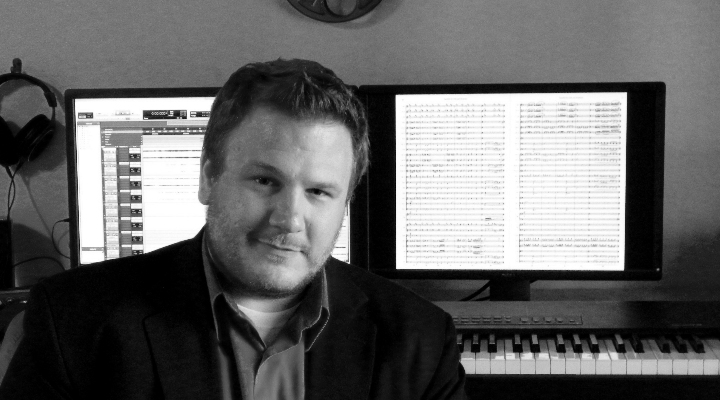A prolific composer and musician, John Ross Jesensky has earned the admiration of peers and audiences alike with his innovative and masterful approach to the art form that is film scoring. In musical composition and film scoring in particular, he has found a vehicle for artistic expression that so closely coincides with his professional endeavors. Specializing in grand piano, his scores have been featured in countless films and have earned recognition through a host of awards as well as inclusion in some of the most revered film festivals and events.
He first began honing the craft that would ultimately earn him such wide acclaim by studying under musicians, composers and orchestrators venerated for their compositional achievements as well as their educational contributions to the field. As a student in the film scoring program at NYU, Jesensky benefited from the tutelage of both Sonny Kompanek and Ira Newborn. This, along with the undergraduate degree earned from the Hartt School of Music in Los Angeles, has served as a foundation for his achievements as a musician and composer.
Jesensky has been honored with awards from the Cannes Film Festival, Bare Bones Film Festival, La Gona Film Festival and Phoenix Film Festival, and a number of his film scores have been chosen for inclusion in the Austin Film Festival and the Newport Beach Film Festival, among countless others over the course of his illustrious compositional career. Profoundly influenced by the mentoring received while attending the Hartt School of Music as well as NYU, his catalog of compositions is reflective of his innovative approach to music as well as his unyielding dedication to artistic expression.
How did you get started in this business? What inspired you to start this business?
My inspiration for pursuing this business arose out of the desire to express myself artistically and to help others do the same.
How do you make money?
My primary source of income is through film scoring, but I also provide a number of other services — consulting, for example — relating to my expertise as a composer and a musician.
How long did it take for you to become profitable?
There are many ways I could measure profitability since I’m involved in such diverse professional and entrepreneurial pursuits, but my consulting business was profitable within six months or so.
When you were starting out, was there ever a time you doubted it would work? If so, how did you handle that?
Yes, I did have considerable doubt since even the most talented musicians and composers struggle to find a foothold in this industry because it is just so competitive.
How did you get your first customer?
One of my mentors recommended me for a short film project in need of a composer, which ultimately led to other work opportunities.
What is one marketing strategy (other than referrals) that you’re using that works really well to generate new business?
I’ve generated a lot of new interest through the podcast I host, even though that was not the original intent of the podcast.
What is the toughest decision you’ve had to make in the last few months?
I have to turn down a lot of the projects I am offered, and the quality of each project I accept is so very critical to me that I end up passing on a lot of projects that I’d really love to work on.
What do you think it is that makes you successful?
I genuinely love doing what I do.
What has been your most satisfying moment in business?
The first time hearing one of my scores used for a short film was a really humbling moment, and I can’t help being proud of the award earned from the Cannes Film Festival.
What does the future hold for your business? What are you most excited about?
I always try to push the boundaries of my own abilities, so I am most excited about seeing what I am capable of in the future.
What business books have inspired you?
“Mansion on the Hill,” by Fred Goodman provides excellent historical context regarding the evolution of the music business over the years.
What is a recent purchase you have made that’s helped with your business?
I recently bought and restored a piano that is just uniquely beautiful in terms of both its sound and its appearance.
What is one goal you hope to achieve through your professional endeavors?
I hope to do for others what my mentors did for me, which is to instill a deep appreciation for artistic expression through musical composition.

